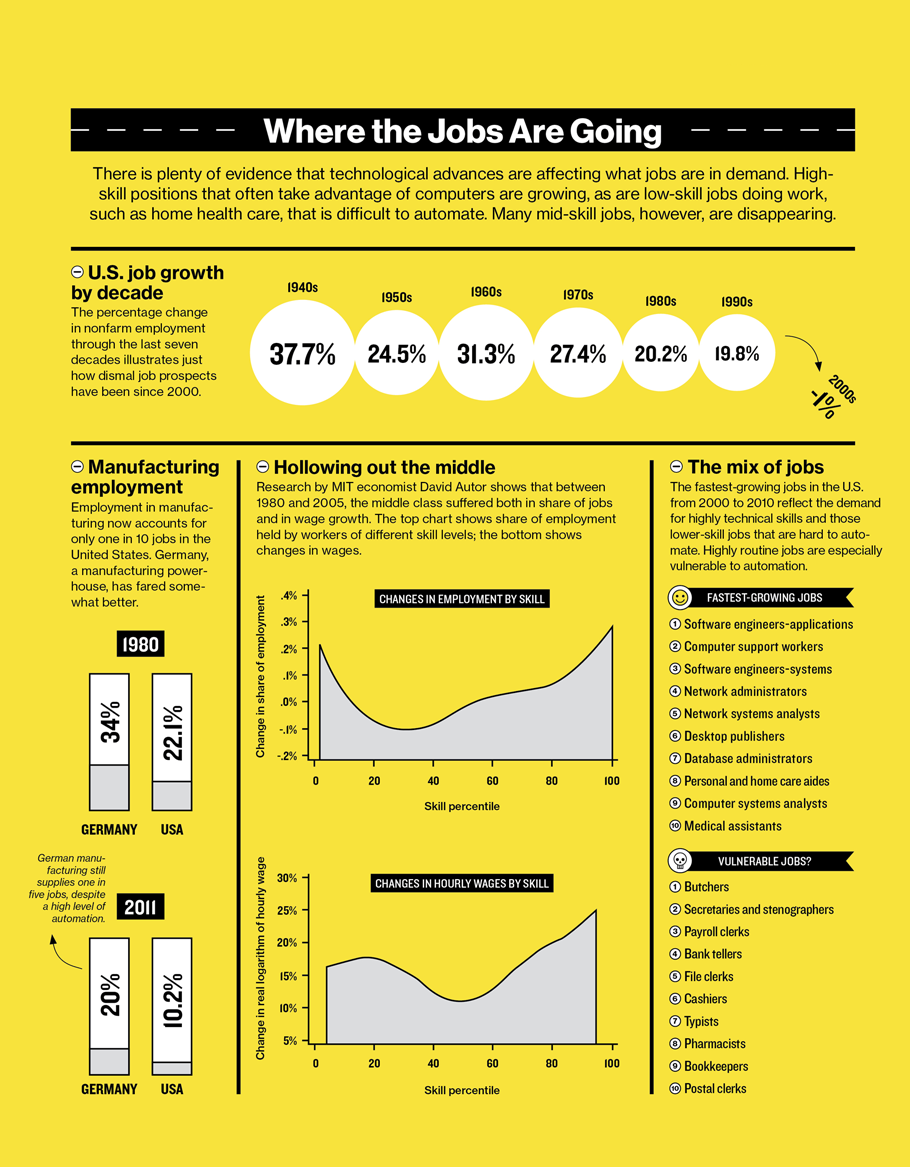New Technology Ups the Need for Universal Healthcare
Experts debate whether robots will take all jobs, but they agree big changes lie ahead.
Beth Mole | October 27, 2015
 |
| Source: http://www.technologyreview.com/featuredstory/515926/how-technology-is-destroying-jobs/ |
<more at >http://arstechnica.com/science/2015/10/new-technology-ups-the-need-for-universal-healthcare/; related links: http://www.technologyreview.com/featuredstory/515926/how-technology-is-destroying-jobs/ (How Technology Is Destroying Jobs. June 12, 2013) and http://www.oxfordmartin.ox.ac.uk/downloads/academic/The_Future_of_Employment.pdf (The Future of employmebnt: How Susceptible Are Jobs to Copmputerisation? Carl Benedikt Frey and Michael A. Osborne. September 17, 2013. [Abstract: We examine how susceptible jobs are to computerisation. To assess this, we begin by implementing a novel methodology to estimate the probability of computerisation for 702 detailed occupations, using a Gaussian process classifier. Based on these estimates, we examine expected impacts of future computerisation on US labour market outcomes, with the primary objective of analysing the number of jobs at risk and the relationship between an occupation’s probability of computerisation, wages and educational attainment. According to our estimates, about 47 percent of total US employment is at risk. We further provide evidence that wages and educational attainment exhibit a strong negative relationship with an occupation’s probability of computerisation.]>

No comments:
Post a Comment